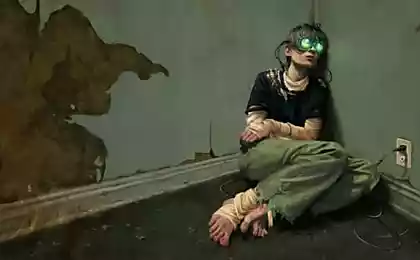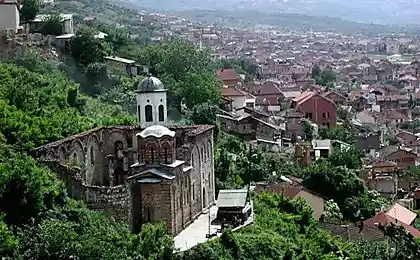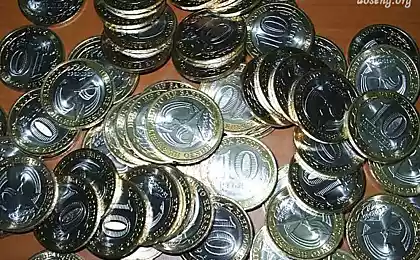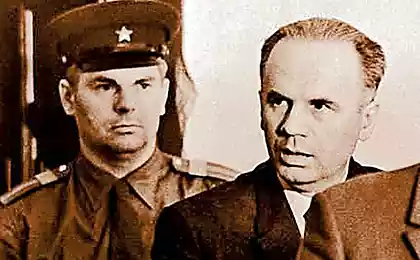529
Serbian recipe against the crisis
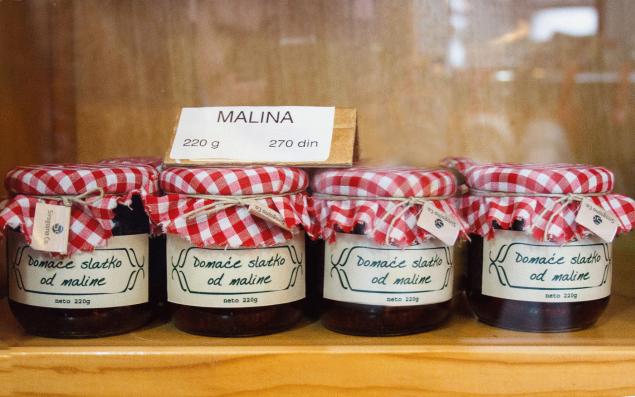
Rade lyuboevich, Serbian "businessman of the year" by Ernst&Young is one of the best in Eastern Europe, experts on crisis business. His business he started in a situation reminiscent of the current situation in Russia — in the context of the international embargo, hostilities and collapse of the entire economy. European correspondent of "SB" Andrey Skripkin met with Mr. Lubavicher in search of a proven anti-crisis business strategy.
How did you start to do business?
Your business I started in the nineties. Then the structure of the state has varied and has the opportunity to engage in private business. This was expressed both in the organization of their own private companies and privatization of state enterprises. Then everyone had to find their way in the new system.
I had a lot of experience in different areas of trade, and in the 1990s I decided accumulated over the decades of knowledge to use to build your business. Then I privatized state-owned company, which since 1960-ies engaged in manual manufacturing of woolen clothing. The company was set up a cooperation model with the local residents. This collaboration provided a good living for the local population, while working at home. In my youth I worked in this company and knew the nuances of workflow. This was perhaps the key factor why at the time of privatization, I decided to take over the management of these enterprises. I wanted the company to stay afloat, people have lost jobs to remain in the world knew about clothes hand-made from the Conservatory.
Along with this I wanted to expand the scope of activities of the enterprise. My idea was to expand the range of products other traditional products of Western Serbia — fruit. The concept remained the same, people should not have to go to work at the factory. They work on the farm, his fields and cultivated berries and fruits that supply us, and we have them freeze, dried and exported to Western countries.
Now our company works with 3500 farmers and the factory for the freezing and drying employs about 1,200 people.
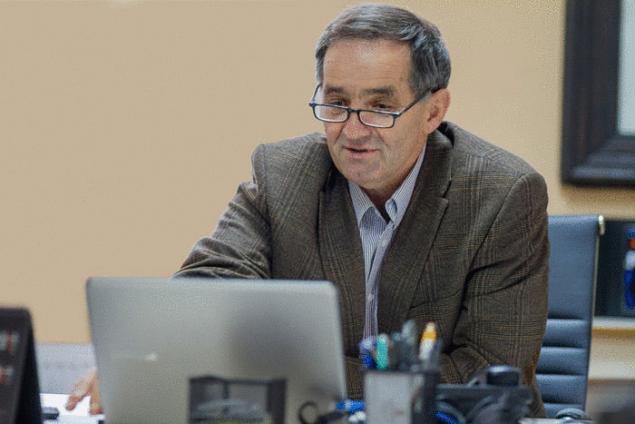
Rade Lyuboevich
The transition from wool to fruit looks quite unexpectedly, that led you to do it?
There were two factors: the first is the existing experience with the local population, and the second is the experience that I received working in the state export company of Yugoslavia. There I was doing just establish contacts for exports of frozen fruit. I had contacts with buyers and manufacturers.
Describe the process of working with farmers? You initially order a specific quantity of products or redeem all the products that the farmer has managed to grow?
Probably the most important thing in our cooperation is the support. We try to support our farmers throughout the year. We have a team of advisers on agricultural issues, who advise farmers. Experts advise that the best time to grow plums, strawberries, raspberries or something else — given the region in which farm is located. Throughout the year the team provides support on all issues, including trying to protect farmers and logistical support: if our farmer requires some equipment, we provide all the necessary, and the farmer, in turn, pays us already at delivery of the crop.
In addition, we regularly hold educational seminars. The topics cover totally different issues in the field of cultivation of fruit. Classes are conducted by our experts and invited guests from various universities and institutions. Our farmers can get advice on any issue they faced in the process.
As soon as the farmer brings to our factory your harvest of berries and fruits go straight into the ice. Everything else — sorting, separation of fruit to those that are dried and those that will be frozen, — is after. What's more important, with our farmers, we are paying immediately. We buy the entire crop. Of course, we expect the volume of supply, knowing the field area and yield in the region, but the actual amount each time varies with the weather.
In the period of the Yugoslav state export the company you have had a good life in Germany. Why did you decide to return to Serbia? Usually people from Eastern European countries who have the opportunity to emigrate to the West, seduces a higher standard of living there.
I am very sad when people leave their homes and gradually the towns and villages are in decline. Of course, this is typical for Serbia, Russia, Bulgaria. But I always thought that it is bad. In my vision of relations with the native place is very important. It is very important where you were born and where you own, it is there, I think you can be most productive. After all, the house you possess all the same skills as in any other place, but you have something more specific to this place. For me it was always very important.
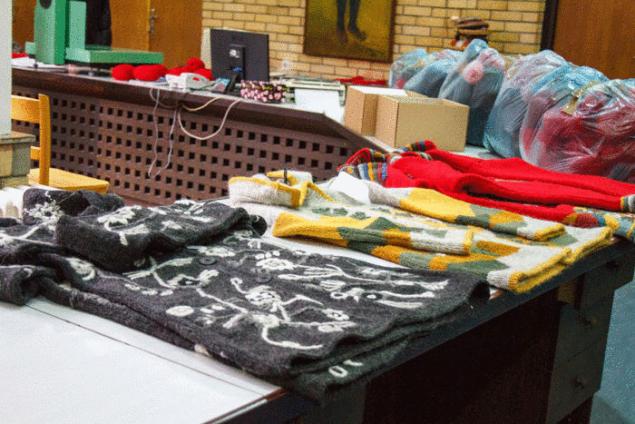
Material for the manufacture of woolen clothing seamstress take in the company's office Sirogojno Style, located in the village Conservatory, they bring ready-made clothes and the remnants of yarn. The quality of work is checked by a clerk, after which the finished product and the excess hair is weighed, the weight must be the same weight yarn issued.
When I was thinking about a Conservatory in the 1990s, I realized that the decline of the manufacturing company of woolen clothes will mean the decline of the entire region. I just could not imagine the region in ruins: abandoned houses with broken Windows... some I even felt it a duty to go to his native region and do something to help, besides, I thought it would be good for me because I feel at home. In Germany I was comfortable and I could find a good job there, but part of me will forever remain in the Conservatory, and I thought that it would be unfair to the place where I was born, not even to try to invest their skills in the native region.
But Serbia in the 1990-ies was still a territory of the armed conflict. Wasn't it scary?
Yes, it was a very difficult time for Yugoslavia: embargo, NATO bombing, economic crisis, very unfavourable conditions for doing business and for life. And of course, a huge problem was because of the bad reputation of Serbia and the Serbian people in those days — perhaps it was one of the reasons I decided to come back. I thought, we are not so bad, maybe I could contribute to change that perception.
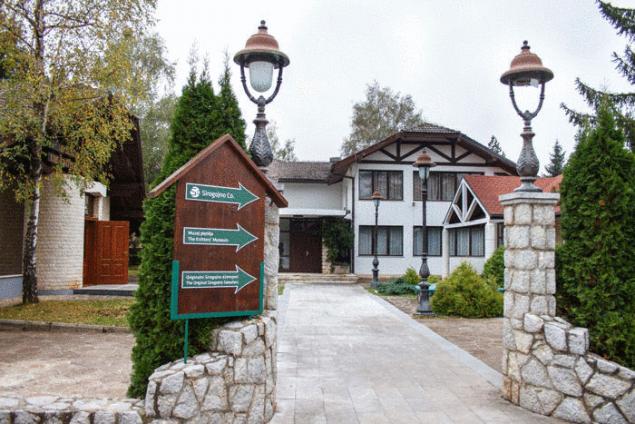
In the village is a Museum where you can see how varied the design of the local woolen clothes over the years. With the Museum adjacent to the shop where you can purchase all of the company's products — clothing, dried fruit, and jam.
A distinctive feature of the time was that the private interests of several persons was put above the national interests of the country. Few people think about unemployment, about any development personal gain was paramount.
The hardest part then had the exporters, the companies that supply their products abroad. Our company has always set itself the priority objective of the export of manufactured goods. It was hard enough to present your company as a reliable supplier for foreign partners. It was hard to explain that we can supply high quality products and to comply with all agreements. Even attractive prices was not an argument in favor of cooperation with us. In this sense, the reputation of the country has brought huge inconvenience in our work.
Another great difficulty was the mentality of people. The nineties brought a period of transition from socialism to capitalism. During the socialist era factories nominally belonged to the people — the workers and employees worked like itself, nominally, of course, because virtually everything belonged to the state, and the people working for the state. But nevertheless the people were led to believe that they are working for themselves, and now they had to work for the owner of the plant. To this day, it is not easy to explain to an employee that he's still working on yourself — in the sense that if he's good at his job that his employer wins, and the better the employer, the better and individual employees. And we explain that only together we can succeed: they don't work for me, not my family. We work all together.
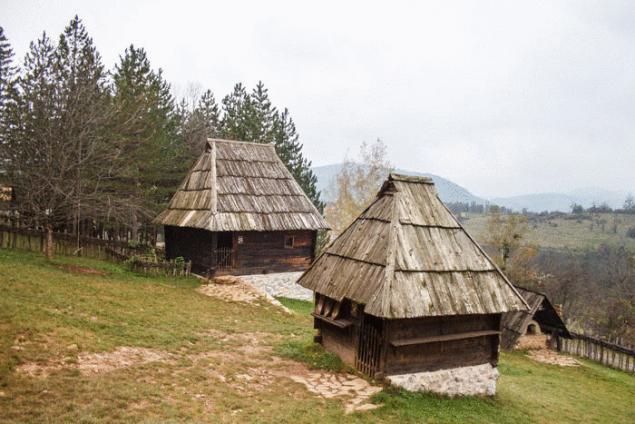
Rade seeks to make Conservatory a center of tourism. A few years ago on the territory of the village opened the ethnic Museum under the open sky, where you can see how lived the Serbs hundreds of years ago. The Museum attracts tourists to the region, giving work to local people, and celebrates a small village in the West of Serbia.
You mentioned damaged the reputation of Serbia and attempts to fix it. Now this question is extremely actual for Russia. What do you recommend?
I agree with you, indeed, the situation in Serbia in the 1990s and Russia are currently a bit similar, I talked about this and our Russian partners, who came to see me. But the situation is such as it is, there are global changes.
Actually I think the problem with the reputation of Serbia has not been fully addressed. We are still struggling with the consequences of this problem. Our recipe for success lies in the fact that we always try to be 100% professional, I always try to respect all agreements with customers, try to observe the so-called German punctuality, respect for the production of all norms of safety and hygiene at the highest level, try to do everything like they do in Western Europe, trying to follow their standard, we are working in Serbia, where the overall situation looks not so positively.
How can you convey to the mind of workers, which for them is also beneficial to fulfill in good faith your work?
It is very important to explain to employees the meaning of all requirements: why you need to follow all hygiene standards are why it is so important for our company. The answer is simple: it is a requirement of our customers and partners. And the problem is, if we do not comply with required standards, then our products simply nobody will buy it, then all we will have problems. It is important to achieve understanding, not just order.
Another very significant factor is the feeling of employees that they can have an impact on the performance of our company, they need to felt it. Did you explain to employees how to work, but it is important to reward them somehow for their work. Need to explain that and the regular salary, as well as its size are the result of a job well done in every area of the workflow. It is important not just to talk but also to show in practice to reward employees for good work.
As a leader you have to respect their rules and personal example to show you how to do, and how not. For example, you cannot ban everything, everywhere Smoking, but to smoke in his office. Sometimes leaders commit such actions, and, in my opinion, they are erroneous.
On the other hand, employees should feel support from the company. Even if their problems are not connected with the work, they should be able to ask for help to the company. For example, the health system in Serbia is not very good, so our company provides financial support to the hospital in užice (near the Conservatory company) so that our workers could get professional help. We try to make our employees did not need to drive several hours to hospitals in Belgrade. But if such a need still appears, then workers can contact the company, what they do, and we arrange the transport that will take them to the hospitals in Belgrade and back.
The people who run companies have a great responsibility towards the employees. Some of the difficulties in our society arise because of a changing reality, not so long ago we lived in socialist system, and very quickly we had this big drastic change, a reversal in the direction of capitalism. People just don't have time to adapt to the new reality. We are somewhere in the middle way between socialist values and capitalist market.
In this issue, in my opinion, the government should support local capital, since we are talking about Serbia, the Serbian capital Serbian business. We are always talking about foreign capital and about the foreigners who will come and save us. I don't have anything against foreign investors, and I'm glad they are investing in Serbia. But I think that the local, Serbian entrepreneurs are ambivalent about the land, its people, and the development of their country than foreigners. I can hardly imagine a foreign investor who will come, for example, in our village Conservatory and will pay as much attention to local problems, as we are, rather it will be oriented only on profit. This is understandable, every company one way or another is focused on making money, but I personally have a very big attachment to the local population, and our relationships are also one of the parts of our business.
Sirogojno
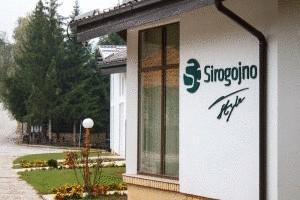
One of the largest exporters of Serbia, is engaged in the production of dried and frozen vegetables and fruits. As a rule, Sirogojino supplies products under private labels of major retail chains. Part Sirogojino includes section Sirogojino Style that works in a completely different area: the division is engaged in the manufacture and sale of woolen goods, works since 1962. published
Interviewed By Andrew Skripkin
Source: www.mybiz.ru/articles/leaders/serbskij-recept-protiv-krizisa/
How to disable cell companies to secretly sell Your data to advertisers
viVood — a small house in one day and 9 thousand$








